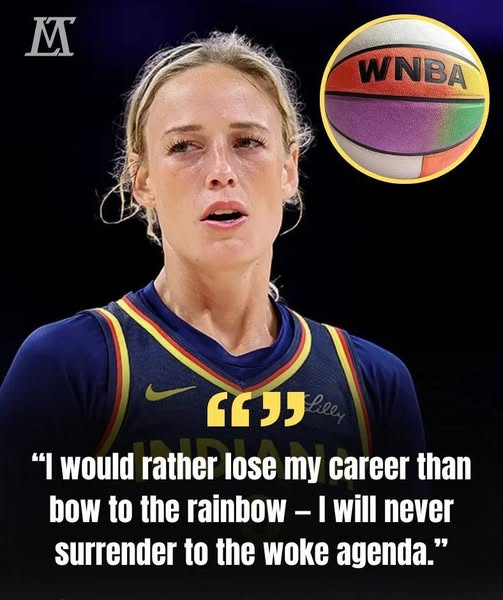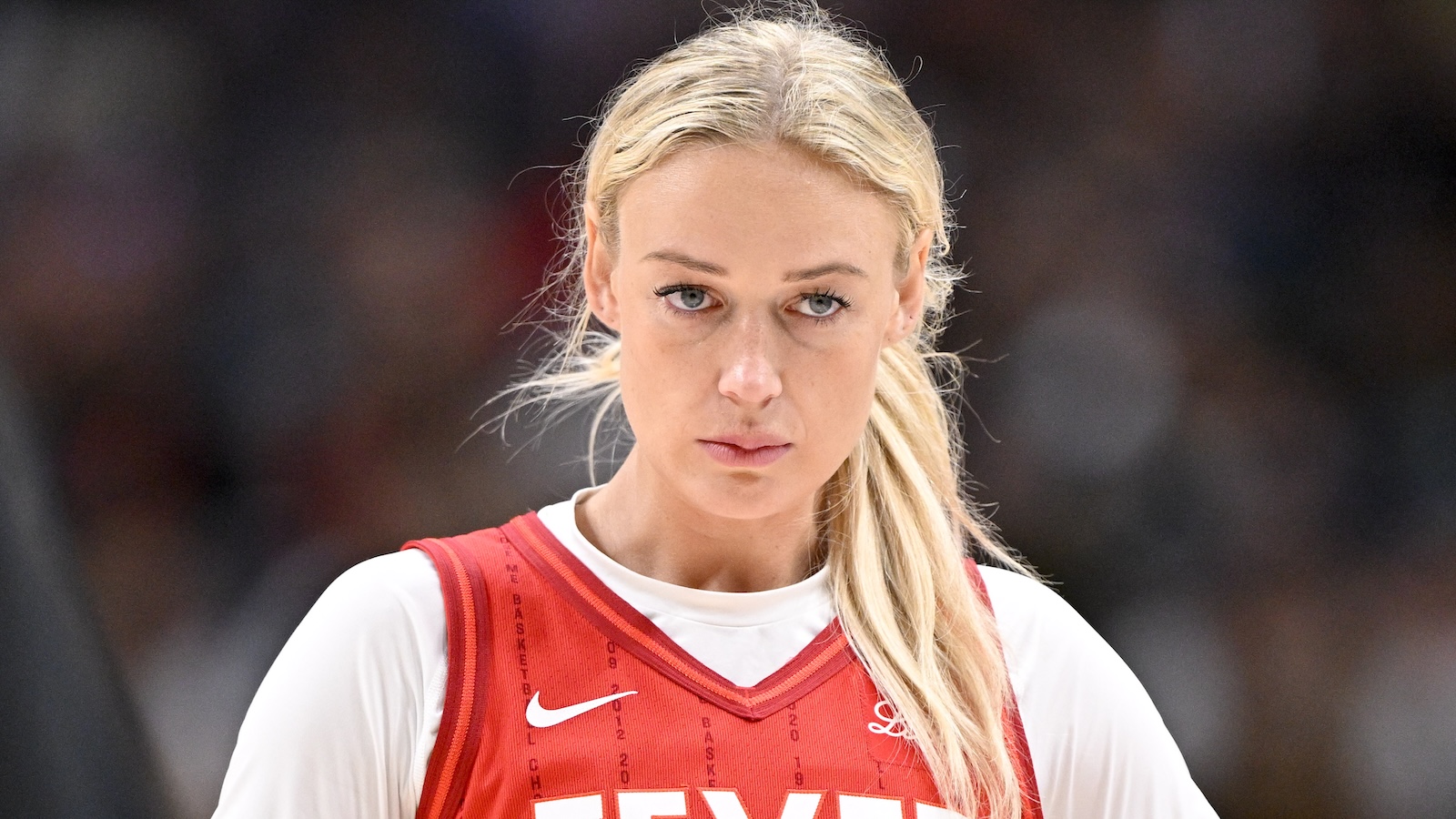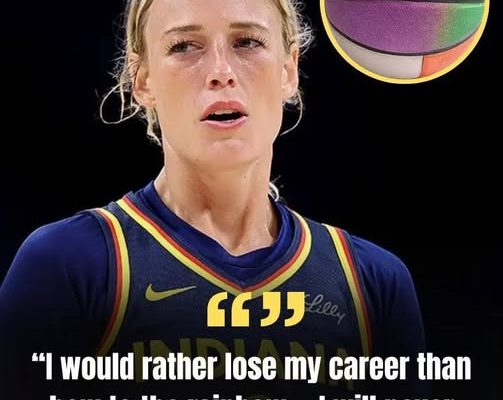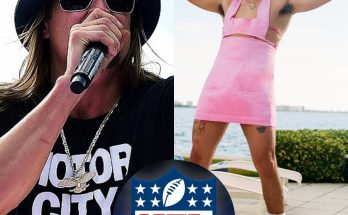
In professional sports, symbolism often carries as much weight as performance.
Jerseys, armbands, and even the color of a basketball can become cultural lightning rods.
This week, Sophie Cunningham of the Phoenix Mercury found herself at the center of a storm after publicly refusing to participate in a Pride Month initiative that involved using rainbow-themed basketballs in a scheduled WNBA game.

Her refusal paired with a pointed declaration that she would not “bow to the woke agenda has set off an intense national debate about sports, identity, and the collision of personal conviction with public expectations.
The controversy unfolded just days before a high-profile matchup.
The league had arranged for players to warm up with custom rainbow-patterned basketballs, a gesture designed to celebrate LGBTQ Pride Month and the community’s enduring influence in women’s basketball.
For many, the initiative was an extension of the WNBA’s long-standing reputation as one of the most socially conscious professional sports leagues in the United States.
But Sophie Cunningham, a forward known as much for her grit on the court as her vocal personality off it, refused.
“Even if it made me more famous or got me more sponsorships, I would never accept it, Cunningham reportedly said when asked about her decision.
“This is the stance of my career.”
Her words reverberated well beyond the locker room.
Fans, commentators, and even politicians quickly took sides, framing the moment as either an act of courageous integrity or an unnecessary rejection of inclusivity.
Cunningham’s Career and Reputation
To understand why this incident has exploded across headlines, it helps to consider Cunningham’s place in the league.
Drafted out of the University of Missouri in 2019, she carved a niche as a scrappy, fearless competitor.
She never shied away from physicality, developing a reputation as a “glue player who does the dirty work her team needs.
Off the court, however, Cunningham has also been outspoken.
She has hinted at her conservative worldview in interviews, though until now, her remarks rarely entered mainstream political territory.
By refusing the Pride-themed ball, Cunningham crossed into a broader culture-war conversation, one that extends far beyond basketball.
The WNBA has long been recognized for championing progressive causes.From supporting Black Lives Matter to celebrating LGBTQ players and fans, the league has leaned into activism as part of its brand identity.
Many of its biggest stars, including Sue Bird, Diana Taurasi, and Brittney Griner, have been outspoken advocates for LGBTQ rights.
In fact, the WNBA boasts one of the highest percentages of openly LGBTQ athletes. among professional sports leagues.
For many fans, Pride celebrations are not performative gestures but authentic acknowledgments of the community’s central role in women’s basketball. That’s why Cunningham’s refusal felt especially jarring.
By opting out of the symbolic gesture, she placed herself in stark contrast to the league’s prevailing culture.
What’s Next for Cunningham and the WNBA
As the dust settles, all eyes will be on the Mercury’s next moves. Will the team discipline Curtningham?
Will the league address her comments directly, or attempt to de-escalate?For Cunningham herself, the coming weeks could define her career.
While she insists her stance is non-negotiable, the reaction from teammates, fans, and sponsors will ultimately determine the cost of her choice.
Whether she is remembered as a principled maverick or as a polarizing figure who allenated the very community that sustained the WNBA remains to be seen.
Sophie Cunningham’s refusal to use a Pride-themed basketball may appear, on the surface, to be a small act
But in today’s polarized America, symbols matter.
Her decision, coupled with her pointed rejection of what she called “the woke agenda, has transformed a simple basketball into a cultural flashpoint. The controversy has raised critical questions about the role of athletes in social movements, the limits of personal expression in professional sports, and the ongoing terision between inclusivity and individual conviction. As fans continue to debate and the league grapples with its next steps, one thing is clear: Sophie Cunningham has ensured that her stance, for better or worse, will be a defining chapter in her career and a revealing moment in the evolving story of the WNBA.



